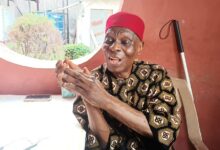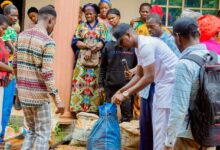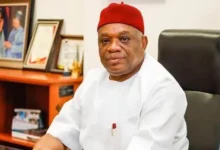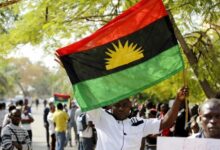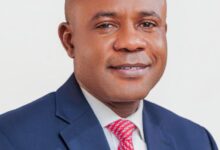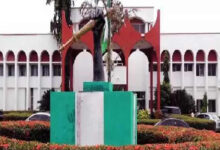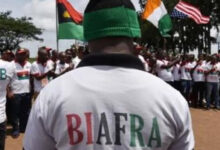
Why is there a rise in insecurity in the South East?
Pro-Biafra insurrection brought on by improper management of rebellious elements
…the spread of firearms and criminal politics by the elite class

FG’s failure to address the region’s vulnerability with an unbiased and comprehensive strategy
…Impunity in the local criminal justice and law enforcement systems
FG is unwilling to hear the voices of reason in or around the Southeast
2,000 persons are thought to have been killed or vanished in the area since 2015.
Currently, the main challenges facing the region are breaking up criminal organizations, cutting off their political ties, and addressing the underlying causes of poverty and human misery.
The fact that there has been a significant security issue in the South-East of Nigeria for the past three years is no longer news.
The region has been completely destroyed by this. Both human lives and property have been severely lost as a result of the catastrophe for the residents of the area.
Thousands of people have lost their lives, property valued at billions of naira has been destroyed, and thousands of people have been forced from their ancestral homes. Numerous attempts have been made to assign responsibility, but none have daringly linked it to a specific problem.
A study on the security situation in the region that aimed to pinpoint some of the underlying issues was released last week in Enugu as part of the ongoing effort to find the causes of the crises. Human rights organizations’ report attributed the unfavorable state of affairs in the area to a complex network of problems, including the corrupt political class’s mishandling of pro-Biafra agitation, insurgency, gun proliferation, and criminal politics; cultism and occultism; and law enforcement’s and the criminal justice system’s impunity. It also mentioned how outside elements like state-sponsored vigilantes, embezzled money, and connections between political crime and law enforcement exacerbate these domestic issues.
The study, entitled “Unveiling the Roots of Insecurity, Healing the Wounds of Human Rights Violations in South-East Nigeria: A Path towards Peace, Open Democratic Space, and a Prosperous Future,” was co-authored by the Action Group on Free Civic Space (AGFCS) and the Rule of Law and Accountability Advocacy Centre (RULAAC).
The study lists “elections are routinely rigged, silencing dissent and denying millions their voices” as one of the contributing causes. It further states that this practice not only undermines democratic competition but also encourages “political violence, with gangs clashing for control.”
The report claims that the effects of rigged elections in the area go beyond simply stealing elections, adding that “this rampant corruption leaves communities mired in poverty, suffocated by the greed of people in power,” as well as “mismanaged resources and squandered potential thereby robbing the people of their future.”
The 2023 elections reached unprecedented levels of depravity and provided no reprieve. Encouraging opponents and civilians alike, politicians openly armed themselves and enlisted gangs, all while enjoying impunity. Encouragingd by their part in manipulating the elections, these gangs dispersed more bloodshed and unrest around the area.
These unbridled bandits come at an enormous cost. Gang wars have claimed many lives and injured many more, including women and children.
However, no one has been held responsible, leaving victims and their families to deal with loss and anguish in the absence of justice.anguish and loss in the absence of justice.
Additionally, the criminal justice system is rife with impunity. Basic rights are often violated, especially with relation to those who are part of groups that support Biafra. Extrajudicial executions, forced disappearances, and torture are all too typical in the area; since 2015, there may have been over 2,000 executions or disappearances, according to estimates.
The financial cost of this instability is high. The local economy is severely harmed by capital flight, company closures, and skilled labor emigration. The drop is further amplified and brought to its lowest point by sit-at-home demonstrations supported by sections of the Indigenous People of Biafra, or IPOB, working with components of organized crime, according to the research.
Further underlying reasons of the security issues that have been found
The research claims that a thorough analysis of past grievances, current economic conditions, institutional flaws, and the interactions between armed groups, communities, and state actors are necessary to comprehend the instability in the South- East.
The origins of this problem are deep, entwined with the region’s complicated problems with governance and competent political leadership, as well as with the poor institutions and corruption that encourage the growing trafficking and manufacturing of illegal weapons.
Furthermore, the absence of effective administration engenders dissatisfaction and mistrust towards governmental agencies, hence rendering populations susceptible to armed factions’ manipulation.
According to the research, ending this cycle calls for a multipronged strategy that targets the root causes of poverty, inequality, and ineffective governance in addition to the immediate threat of armed conflict.
It observes that the limited space for political speech and engagement is a key contributing factor to the violence in the region. “A variety of strategies, including vote-buying, intimidation, violence, and even outright manipulation, deprive citizens of the ability to make educated election judgments, leaving them feeling disenfranchised and ignored. Social unrest is fueled by political discontent, which also fosters an environment that is conducive to militancy and violence.
The report goes on to say that in order to ensure a secure and prosperous future for the region, it is imperative that the pro-Biafra insurgency be addressed along with these deeply ingrained internal conflicts. These include breaking the power of cults, stopping the flow of illegal arms, mediating land disputes, and launching a comprehensive solution approach for them. The Tinubu administration is urged to “take a significant step towards restoring peace, justice, and accountability in the region.”
What steps should I take next?
Currently, the main challenges facing the region are breaking up criminal organizations, cutting off their political ties, and addressing the underlying causes of poverty and human misery. Furthermore, the issue of false information that links all crimes in the zone to insurgency has to be addressed. In order to get a greater understanding of the underlying causes and drivers of insecurity and provide practical solutions for mitigating them, stakeholders such as the government, security agencies, monarchs, community leaders, and civil rights organizations must make efforts and provide assistance.
We desperately need a de-escalation plan that puts communication and observance of human rights first. It is crucial to look into and prosecute abusers, both in the military and in civilian settings, in order to rebuild confidence and avoid future
The Executive Director of RULAAC, Okechukwu Nwanguma, stated in his remarks prior to the report’s release that the report aimed to capture and “project the correct narrative about the roots, drivers, actors, patterns, dimensions, and effects of insecurity in the South-East.” He went on to say that the study was the result of several stakeholders getting together and discussing insecurity in the Southeast.
“The Federal Government is merely not interested in listening to the voices of reason in or about the South-East,” it became abundantly evident from all of the exchanges. Even as he directly criticized the Federal Government “for its failure to adopt an open-minded and holistic approach in responding to insecurity in the South-East,” he said, “It is not paying attention to the plight of the people and is not interested in sincerely addressing or solving the problems of the people of the zone.”
According to Nwanguma, the Federal Government is just motivated by the following philosophy, as President Buhari disclosed in an interview with Arise TV in 2021: “To communicate with individuals in a language that they can comprehend.”
The South-East police have responded to reckless directives like President Buhari’s 2021 “shoot at sight” order and the then-Inspector-General of Police’s subsequent order to pursue IPOB, kill them, and not worry about human rights violations. He bemoaned the findings of their investigation, saying they “paint a bleak picture of public security policies in the region that is heavily reliant on repressive police and military action, often with excessive force.”
“Not a few people of conscience were shocked to learn that no fewer than 107 citizens were arbitrarily arrested from various locations in Owerri, Imo State, labeled as members of the IPOB, and arraigned, not in any court, but at the Shell Camp Police Division car park in Owerri. Later, the arraignment was moved to the Conference Hall of the Imo State Commissioner of Police, with some magistrates presiding,” Nwanguma claims. They were placed on detention at the Owerri Prisons after being accused of treasonous offenses, including conspiracies to assassinate Governor Hope Uzodinma and President Buhari.
It was absurd how many people the Imo State police detained and charged in a single day on suspicion of plotting to assassinate Governor Hope Uzodinma and President Buhari. The weapons that the people, including women and children, intended to use to carry out the overthrow were not displayed by the police. That was nothing more than an intentional declaration of war directed on law-abiding, innocent Imo State residents going about their daily lives.
The growing influence of state governments in the region, particularly the governors of Imo and Ebonyi states, over media outlets is another concerning aspect. This has made it challenging to monitor violations of human rights, which has given the government and security services the ability to control the narrative and hide their abuses. Because of this, the state government media was also successful in promoting a single story by attributing all security incidents and fatalities in the area on the pro-Biafran separatists.
“A lasting solution demands acknowledging the complex web of additional forces fuelling the flames of violence. While RULAAC correctly identifies pro-Biafra agitation and insurgency as significant contributors to insecurity in the South-East, attributing the problem solely to these factors paints an incomplete picture.”





